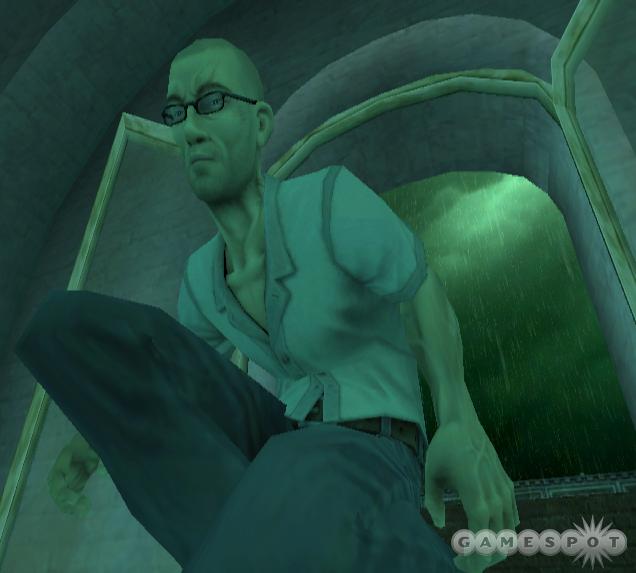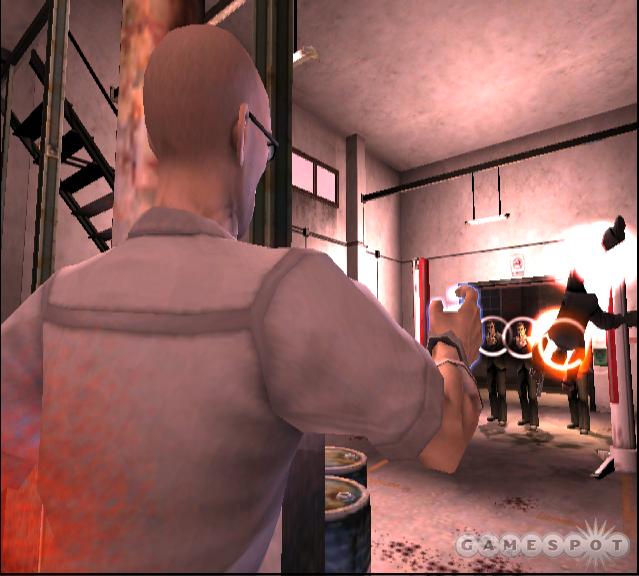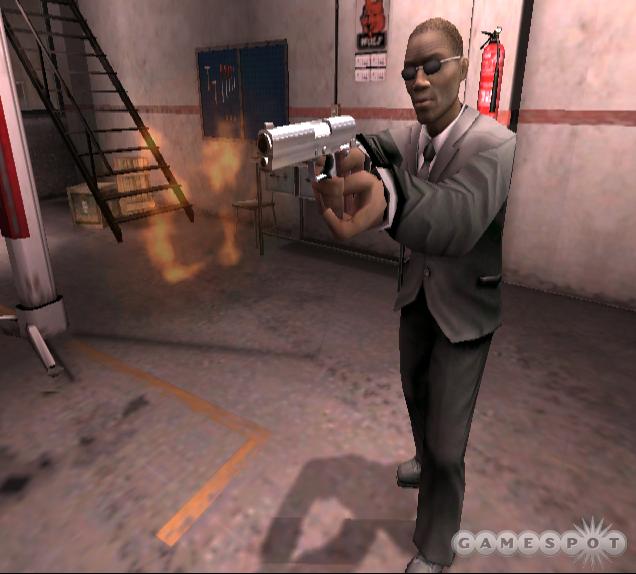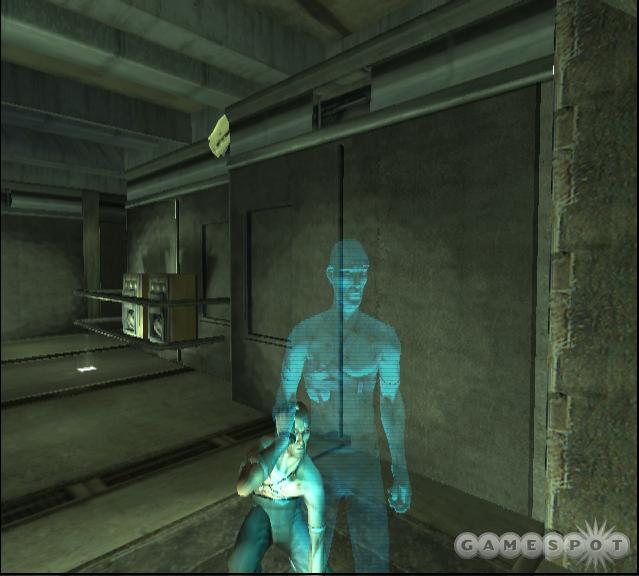Second Sight Q&A
We talk to developer Free Radical about its upcoming multiplatform action game.
Second Sight is the upcoming action game from UK-based developer Free Radical, best known for its prowess with developing first-person shooters. The knack for crafting games in that competitive genre is the result of the cumulative experience of its staff. The company is made up of many of the key people responsible for the hallowed Nintendo 64 classic GoldenEye and the TimeSplitters games, which have become popular first-person shooters in their own right. Second Sight is a clear change of pace for the developer and offers a third-person, story-driven action experience that's quite different from the FPS genre. We had the chance to speak to producer David Doak from Free Radical about the upcoming game, which is slated to hit the GameCube, PlayStation 2, and Xbox later this year.
GameSpot: How did Second Sight come about? What inspired the game?
David Doak: Fundamentally, we wanted to make an original game with an intriguing story that was told well. The idea of having a flashback narrative came very early. There's a long history of people wanting games with interactive storylines, and our take on that was to present a story starting in the middle where things have already gone wrong, and to allow the player to piece it together and fix what is broken. This allows us to control the story-branching and contingency while still involving the player.
Another goal was to have a believable, contemporary realistic setting but to indulge in one fantastic element--we had a few ideas but decided that psychic powers would open up new gameplay possibilities. There was a real synergy between the flashback narrative and the psychic elements, so "Second Sight" was born.

GS: Free Radical has traditionally focused on shooting games. Has working with stealth gameplay been a constraining or a liberating experience?
DD: It has been fun, and I think that our take on stealth in Second Sight is really quite fresh. The charm, psi power (kind of a distraction mind trick), effectively allows the player to improvise stealth in impossible situations, like sneaking past a guard who has a corridor absolutely covered. It can feel very empowering and a little naughty to outmaneuver the artificial intelligence like this--however, it's also a risky tactic, mistiming or blundering into guards can completely wipe out your psi power, which can leave you effectively "psi naked" in the middle of a bunch of gun-toting guards.
GS: In what ways is working on Second Sight different from the TimeSplitters titles?
DD: From a game development point of view there are actually more similarities than differences. The same kinds of challenges always arise--largely to do with getting the assets (art, animation, sound) to integrate with the code, building workflow pipelines, checking and rechecking data, coping with unforeseen problems.
Notably, we didn't have multiplayer to deal with in Second Sight, but on the other hand, we were creating a considerably deeper single-player adventure narrative experience that necessitates dealing more fully with the player's exploration of the game environment. This is particularly true of levels with friendly AI characters.
From a creative perspective, TimeSplitters has always allowed an almost ridiculous freedom and almost anything goes; however, it has actually been quite refreshing to work with the more realistic world in Second Sight. Being constrained to a strong narrative and by believability can add a very useful focus and discipline. For instance, TimeSplitters has always had a tongue-in-cheek humor about it, like monkeys with flamethrowers--our sense of humor is alive and well in Second Sight-- it's just a little more controlled and wryly delivered.

GS: What advice could you offer to someone about to play Second Sight for the first time?
DD: Enjoy the story, and don't be afraid to improvise with the psi, gunplay, and stealth--there are often multiple approaches, and whatever works for you is right.
GS: How did you brainstorm Vattic's psychic powers? Did you come up with any powers that were too outlandish to include in the game?
DD: We took out the ability to see right through ladies' clothes.
GS: Is it conceivable that the game could actually be completed without using any of Vattic's psychic abilities?
DD: The psychic abilities are a vital part of Vattic's "arsenal," but given that there are a fair number of firearms kicking around, it is possible in many occasions to rely entirely on gunplay. However, there are plenty of situations where psychic powers are necessary to progress (for example, you can't get out of the first room in the game without using psi!).
GS: Second Sight contains two narrative threads set in different time periods. How did you approach a storyline that has the player affecting events in one time period by performing tasks in another?
DD: By carefully planning the whole thing out at the start and sticking to it--the story really has to be very tight, as events have to make sense before and after each of the changes. One of the fun things is that the player will be prompted to rethink his interpretation of events as the story progresses and he will then learn more.
GS: Given the variety of abilities at the player's disposal, is the level design much more difficult?
DD: It can cause headaches, as the psychic powers can be used to screw up level design, which would otherwise be watertight. Our approach was fairly organic, in that a level would be set up to a first pass and if someone subsequently worked out a clever unexpected approach, we would just make sure that the possibility was handled properly. In other words, we would try to accommodate innovative approaches rather than stifle them.

GS: Did you ever consider implementing multiplayer options in the game?
DD: No, it wouldn't have been appropriate to the story. With a third-person game we were tackling a lot of stuff that was new to us and consequently we had some fairly major research and experimentation to do. I think that trying to incorporate multiplayer at the same time would have added confusion and diluted our focus through development.
GS: What can you tell us about the technology behind the game?
DD: The game technology is based on the TimeSplitters engine but with considerable advances. Most obviously, all of the third-person control interface and camera work, which simply was not part of our existing technology. Thinking about it though, it's actually hard to identify elements of the game that haven't been significantly upgraded. The physics engine is all new and was something that we really had to work at in order to provide a robust foundation for the psi telekinesis gameplay. The characters are higher poly than we've used previously, the animation rigs are better, the rendering now supports shadows, specular effects. We're streaming a lot more geometry, textures, sound and animation, and so on. The AI system has been completely reworked.
GS: Are there any challenges to developing the game across all three platforms?
DD: We had already cut our multiplatform teeth on TimeSplitters2, so there wasn't really anything to be overly worried about. All three versions have developed in parallel, so we've been able to keep tabs on where we are with each one throughout development. Sometimes functionality will be added on one platform and then we might find that it has to be implemented differently on the others. A good example would be the psychic effects, which look very consistent across the versions, but are actually coded very differently due to hardware.

GS: Will there be unique content or functionality in any versions of the game, like connectivity with GBA, Dolby 5.1, HDTV support, and so on?
DD: No.
GS: Do you see Free Radical branching out into other genres once Second Sight is done?
DD: It's certainly possible. With Second Sight we wanted to demonstrate that we weren't just a first-person shooter developer. I mean, it should be obvious that within Free Radical our gameplaying experience and tastes aren't restricted to one genre, but somehow people like to pigeonhole and assumptions get made.
Another factor is that this industry has become intensely competitive and I think it is important for a developer like us to not overspecialize. There are a lot of things we'd like to try our hands at--it's just a matter of identifying the real opportunities and targeting them effectively.
GS: Thanks for your time.
Got a news tip or want to contact us directly? Email news@gamespot.com
Join the conversation